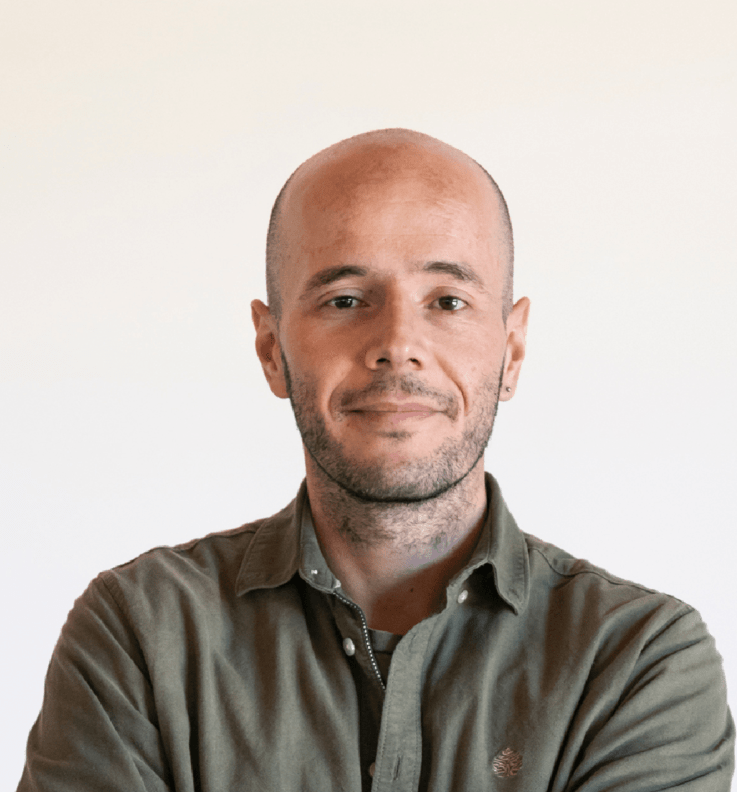ICEERS | 9 February 2023
Since launching in 2013, the ICEERS Integration & Support Center has worked with more than one thousand people who have had difficult experiences with master plants. David Londoño, the Coordinator of the Support Center, expands on topics from a previous article on Plant Medicine and the Ego: A Process of Reintegration. David explains that people sometimes make severe or wrong decisions based on what ayahuasca “tells” them, believing that the messages come from the medicine instead of their inner world. These false messages may not consider someone’s well-being or that of others. Therefore, it is crucial to develop the ability to discern what comes from plant medicine as compared to unconscious desires, fears, or fantasies.
David explains that ayahuasca or any other plant medicine experience should be approached with caution and discernment. People can make decisions based on messages “received” from ayahuasca during the experience. They interpret it as something coming from the outside. And this can lead to disappointment with the medicine when they realize they made a mistake. Some examples of this include separating from a partner, moving to another country, or giving someone a considerable amount of money.
According to David, there are curanderos who talk about false visions and authentic visions. That’s why having criteria to discern one from the other is essential. This requires the ability to connect with people who have deep knowledge about plants to help participants distinguish between what comes from a place of truth as compared to their inner world. David says there is no quick path to developing this discernment, but there are guidelines.
Guidelines to Discern Messages Coming from You as Opposed to the Plant
Discernment and guidance are crucial in having a positive, meaningful experience with ayahuasca or other plant medicines. To avoid making drastic, potentially harmful decisions, it’s important to have an experienced guide. Other essential factors include consideration for the common good and talking about your experience with someone else.
When interpreting messages from a plant medicine experience, consider the common good. David says that plant medicines will never send a message to hurt someone or harm another person. Nor will the medicine make someone feel pathologically guilty about anything. Plant medicines would never tell you you have to become a shaman, donate all your money to the facilitator, or fast for fifteen days. David reported those types of things come from compulsion, and almost always have a root in something false and unhealthy.
The ways in which psychedelic experiences are viewed make a difference. David mentioned it is different to say, “I got the message that I have to fight with X person” than “I had an experience that helps me connect with the anger I have.” The way people interpret the insights they receive can lead them down very different paths. That is why working with another person to interpret these messages can be helpful.
The Importance of Integration
In cultures historically working with ayahuasca, integration is part of a holistic cultural framework that encompasses plant knowledge, spirituality, and traditional knowledge systems. There is a deep respect for the elders and their experience with plant medicine, which is viewed as a normal part of life. Integration is not considered an isolated event, but instead a part of the larger spiritual and cultural practices. In contrast, the understanding of integration is still in its early stages in the Global North. It lacks a cultural framework and societal awareness of spirituality and altered states of consciousness. The approaches to integration vary widely between these two worlds.
David mentions that it is essential for facilitators in the Global North to have proper training and experience to avoid reinterpreting someone else’s experience through their filter. The facilitator should listen to the person respectfully and offer helpful support without invading the essence of the experience. Integration is not just sharing what happened. It requires the ability to attentively listen and respond in a way that helps the person make sense of the experience.
Talking about a psychedelic experience with someone else is another method to help “land” what took place during a session or ceremony. David recommends that these discussions be done with a guide, or someone who works with plants or has experience with altered states of consciousness. They can offer perspective to help support people if they lost their way. David shares that having an external source is going to take someone out of a solitary, self-referential place and help them become aware of their blind spots. This can inspire them to interpret things differently. Working with someone trained in integration can help people to discern if their insights are appropriate and healthy.
Experiences with ayahuasca and other plant medicines can, at times, be ineffable. However, integration work consists of putting the visions and sensations into words. David reports that this process is essential because putting the experience into words can help ground it. Expressing the experience in words is not the only way to do this, but it is important.
An example from the ICEERS Integration & Support Center
David gives an example from the Support Center about a young man who had a traumatic experience with ayahuasca in southern Europe. The participant was seeking answers and had depression and PTSD. The ceremony guides pressured him to take more medicine during the ceremony, which led to a terrifying and overwhelming experience offering no insights. The participant was panicked, unable to concentrate, and had constant flashbacks after the ceremony.
The Support Center offered an empathic and non-judgmental space for listening. David reported that the participant began to understand that ayahuasca had amplified his tendency to disconnect from his own body (a body that he himself rejected). He could, at times, project the rejection he felt for himself onto others, which in turn made him feel rejected. These dynamics contributed to his isolation.
Through the integration process, the participant built self-knowledge, integrated core lessons, moved out of isolation, and considered safer steps toward recovery. He eventually wrote to the Support Center and said he no longer had difficulties with his ayahuasca experience and was interested in connecting with others.
You can read the entire interview with David in Spanish here.
Further Reading
- Plant Medicine and the Ego: A Process of Reintegration
- Is There Such a Thing as a Bad Ayahuasca Trip?
- ICEERS Support Center | Assistance with challenging experiences
Photo by Benjamin De Loenen.
Categories:
NEWS
Tags:
ayahuasca
, traditional medicine
, interview
, psychological well-being
, psychedelic therapy
, support
, integration
, help center


